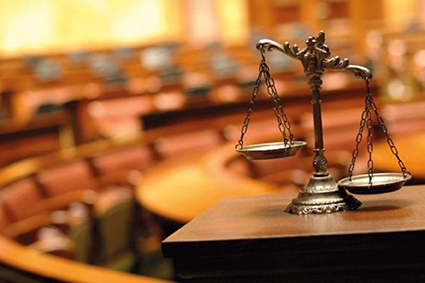The Lucifer Effect: How to Turn Georgian Judges Good
Georgia has a plethora of issues needing attention and reform, but there is probably no topic as significant and crucial as the judiciary. Since the dissolution of the Soviet Union, Georgian governments have been trying hard to build a comprehensive, sophisticated, independent and, most importantly, publicly trusted judicial system. Unfortunately, these attempts have been unsuccessful, largely due to the unwillingness of the ruling political powers to give up such a strong and influential mechanism, a tool still widely used by ruling regimes in non-democratic states to oppress and punish counterparts.
The current rulers, Georgian Dream, are today pushing for another grand reform that, in theory, should finally put into the judiciary some widely accepted, recognized and embedded democratic standards such as the check-and-balances model. This process is chock-full of controversy due to a number of highly questionable decisions that have so far been made, among them the appointment of judges who are blamed for unlawful past judgements in extremely sensitive and scandalous criminal cases. The majority of local and foreign experts and NGO/INGOs expressed their astonishment at the appointments and are calling on the government to show the political will to truly reform the system.
In the wake of such turbulence, Irakli Kobakhidze, Chairman of Parliament, poured fuel on the fire during a TV appearance on February 5 where he commented on the appointments, stating that those judges who had misdemeanors in the past had in fact been “made good” as a result of systemic and environmental changes. These remarks were considered by some as unacceptable and unethical. But if we put political and ideological rivalry as well as populism aside, it is obvious that Kobakhidze’s statements perfectly fit into the social psychology paradigm and reflect a working policy that, at the end of the day, must be pursued with minor changes.
The Lucifer Effect: How Good People Turn Evil
Social Psychology is a field that studies the influence of social processes and environment on people’s behavior. It basically argues that individual behavior is not determined solely by a human being’s personal character, ethics, values and attitudes; obviously, it is highly sensitive to external impact and/or pressure that independent variables such as environment or a stressful situation may have. Human beings are not, by default, “bad” or “good”, meaning that their behavior is not pre-determined by nature but rather conditioned by a set of internal and external characteristics that may force “good” people to turn “bad” and “bad” people to turn “good”.
One the most prominent representatives of the Social Psychology school is Stanford University Professor, Philip Zimbardo, who argued these ideas in his prominent work The Lucifer Effect (TLE), How Good People Turn Evil. Zimbardo takes a look at the so-called Stanford Experiment and misbehavior of American soldiers in the Abu Ghraib prison in Iraq. He is confident in his judgements that the cases prove the significant role of the system and environment on the behavior of individuals who had previously never had records of violence and misconduct but who were keen to engage in such actions once affected and pushed by external factors.
Irakli Kobakhidze’s comments may sound cynical and irrelevant, but actually the creation of a healthy, free, independent and transparent environment/system is crucial for the establishment of publicly trusted institutions that will contribute to a judicial system that supports “good” people and keeps away and/or sets a working framework for the “bad”. Kobakhidze raised the important issue of systemic change but did so in a non-diplomatic manner and without explanation.
Applying the Framework
Before arguing the steps the government needs to take to achieve a successful reform, we should speak about at least two important issues that are frequently overlooked.
Readiness to Obey
While debating the judicial system reform, analysts often undermine the importance of the Georgian mentality and political culture. Representatives of Georgian society, as well as elites, frequently talk about building a publicly trusted institution, but, factually, neither side is really ready to contribute to the building.
This reality is determined by the widely-shared perception that a fair and free court is a court that makes “respective” judgements which are acceptable for everyone. But this is practically impossible, as the “loser” always opposes and questions the judgement made and, thus, questions the judiciary. Furthermore, representatives of Georgian society have no general culture of obeying court decisions unless they are victorious. As such, at the end of the day, the demand for an impartial, fair and free trial is never-ending.
Another obstacle is the local political culture that, according to the best traditions of Georgian mentality, is tolerant only towards those institutions which are politically and ideologically acceptable and beneficial. Mikhail Saakashvili’s regime had no issues with the corrupt judicial system of the time until it was subordinated to the political elite. Yet, representatives of the former ruling movement are dissatisfied with this less (but still) corrupt institution under Georgian Dream governance. The unwillingness of local political powers to give up the judiciary as a political mechanism prevents the establishment of a truly independent institution.
Thus, it makes no sense to debate judicial system reform unless we bring significant changes into the Georgian mentality and local political culture.
Must Dos
We should express and keep in mind three basic assumptions. The first: there is no way we can build a judiciary that is fully trusted by all, meaning that we will never have a system that is acceptable for everyone; hence, we need to learn to obey judgements unless they are clearly partial. Second, we need to make it clear to local political powers that the judiciary is not a subordinated-to-the-ruling-elite political mechanism or weapon. Finally, we cannot afford to fire every judge who had a past misconduct; Georgian society does not have the human resources required to repeat Saakashvili’s period formula of “fire everyone and hire new staff”. As such, we must work with those people who are in the system today.
Based on these three pillars, the government should push for systemic and environmental change, meaning that “good” people are not pushed to do bad and “bad” people are turned “good” or are kept out of the system. Those judges who had a strong background of misconduct must be severely punished and expelled from the judiciary, while others are given chance to prove their professionalism and devotion to the new democratic standards. The idea of life-long judges must be temporarily abandoned. The existing political reality and human resources are not enough to pursue this approach. Rather, we need a long-standing project, perhaps “judge of the future”, which will prepare a new generation of public servants who will be appointed on a life-long basis later on. These decisions ensure that the most prominent “guilty judges” are punished, others are given a second chance, relatives of victims get at least minimum justice and Georgian society has time to establish a functional judiciary with trusted life-long judges.
By and large, the judiciary reform is probably one of the most relevant and sensitive topics today. Kobakhidze’s arguments are not by default false; moreover, his views totally fit into the Social Psychology paradigm which argues for a healthy system and environment to prevent “good” people turning “bad”: the “bad” may turn “good” if they are put into such conditions. Georgian society needs not only to reform the judiciary but also to reform its mentality and political culture. Furthermore, it needs to recognize that we cannot simply fire everyone who does not satisfy the high moral and ethical standards- Georgia lacks the human resources for that. That said, it is wise to punish those who deserve it (within reasonable and existing limits) while continuing to cooperate with others. The idea of life-long judges must be postponed in order to prepare a new generation of public servants to be appointed according to the approach later on.
By Archil Sikharulidze and Teimuraz Sikharulidze












